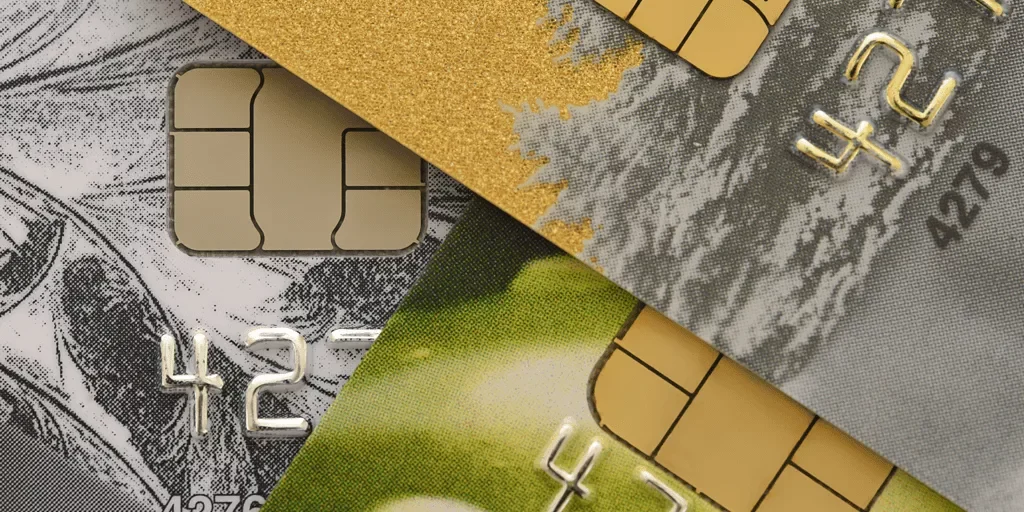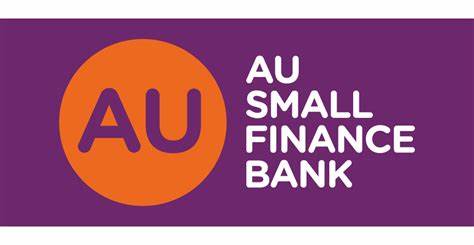Introduction
In today’s fast-paced financial environment in India, choosing the right credit card is more than just a convenience—it's a strategic financial decision. With a plethora of options available, each offering different benefits and drawbacks, selecting the ideal credit card can seem daunting. However, the right card can enhance your financial flexibility, provide valuable rewards, and even help build your credit score when used responsibly.
This guide aims to demystify the process of selecting a credit card in India. Whether you're a first-time applicant or looking to optimize your current financial tools, this guide will walk you through understanding the basics of credit cards, analyzing your financial health, and comparing various offers. By the end, you'll be equipped to choose a credit card that not only meets your financial needs but also complements your lifestyle and spending habits.
Let's embark on this journey to find the perfect credit card for you in India, tailored to harness the potential of your economic choices in 2024 and beyond.
Credit Card Features to Consider
Selecting the right credit card in India involves more than just understanding your financial health; it also requires a keen eye for the specific features that can maximize your benefits while minimizing costs. Here's a detailed look at key features you should consider when choosing a credit card:
1. Rewards Programs
Rewards cards are incredibly popular for a reason—they offer cash back, points, or miles based on the amount you spend. When choosing a rewards card, consider the following:
- Type of Rewards: Determine whether you prefer cash back, points, or travel miles. For instance, if you travel frequently, a card that offers air miles and hotel points might be beneficial.
- Earning Rate: Look at how much reward you earn per rupee spent. Some cards offer higher rates on specific categories such as dining, groceries, or fuel.
- Redemption Options: Ensure that the redemption process is straightforward and the rewards can be redeemed in a manner useful to you, whether that's statement credits, travel bookings, or gift vouchers.
2. Interest Rates (APR)
The Annual Percentage Rate (APR) is critical if you plan to carry a balance on your credit card:
- Promotional APRs: Some cards offer low introductory APRs, which can be beneficial for making large purchases that you plan to pay off during the promotional period.
- Regular APR: After any promotional period, the standard APR applies. Compare this rate across cards, especially if you occasionally carry a balance.
3. Fees
Credit cards come with various fees, and it's essential to be aware of them:
- Annual Fees: Some premium cards charge an annual fee in exchange for higher rewards and benefits. Calculate whether the rewards offset the fees.
- Foreign Transaction Fees: If you travel abroad or make purchases in foreign currencies, look for cards that don't charge foreign transaction fees.
- Other Fees: Be mindful of fees for cash advances, late payments, and exceeding your credit limit, as these can add up.
4. Credit Limit
The credit limit assigned to your card will affect how much you can spend:
- Initial Credit Limit: Based on your credit score and income, the issuer will set a limit, which can impact your credit utilization ratio—a key factor in your credit score.
- Credit Limit Increases: Some cards offer automatic credit limit increases if you use your card responsibly, which can improve your credit score by lowering your credit utilization ratio.
5. Additional Perks
Many credit cards offer extra benefits that can be very valuable:
- Insurance: Look for cards that offer complimentary travel insurance, purchase protection, or extended warranties.
- Airport Lounge Access: Frequent travelers might appreciate cards that offer free airport lounge visits.
- Concierge Services: Premium cards often provide concierge services to help with travel bookings, dining reservations, and more.
6. Security Features
With the rise of digital transactions, having robust security features is a must:
- Chip and PIN Technology: Ensures secure transactions and is standard in many cards.
- Fraud Monitoring: Some cards offer real-time alerts on suspicious activities.
7. Customer Support
Responsive and helpful customer service is crucial, especially when dealing with lost cards, fraud, or billing issues. Consider issuers known for excellent customer support.
By carefully considering these features in light of your personal and financial priorities, you can choose a credit card that not only meets your needs but also enhances your financial well-being. In the next section, we will explore how to effectively compare credit card offers to make the most informed decision.
Comparing Credit Card Offers in India
Once you've identified the features you need in a credit card, the next step is to compare the various offers available on the market. Comparing credit card offers can be overwhelming, but with a systematic approach, you can simplify the process and ensure you choose the best card for your needs. Here’s how to effectively compare credit card offers:
1. Use a Reliable Comparison Tool
To start, use a reliable comparison tool that provides up-to-date information on a wide range of credit cards. These tools often feature filters that allow you to narrow down your options based on specific criteria such as APR, annual fees, rewards programs, and more. They display side-by-side comparisons that make it easier to evaluate different cards based on your selected features.
2. Evaluate Reward Structures
Carefully look at how different cards structure their rewards:
- Earning Potential: Estimate how much you'll earn in rewards based on your average monthly spending. Include calculations for different spending categories if the card offers varying rates.
- Redemption Flexibility: Consider how you can redeem rewards and whether there are any restrictions or blackout dates, particularly for travel rewards.
3. Consider Interest Rates and Fees
Interest rates and fees can have a significant impact on the cost of using a credit card:
- Introductory Offers: Some cards offer low or 0% APR for an initial period. Calculate how much you would save on interest during this period compared to your current or other prospective cards.
- Regular APR and Fees: Beyond any introductory period, understand what the regular interest rates will be and how much the card will cost in terms of annual fees and other charges.
4. Read Customer Reviews
While comparison tools provide the technical details, customer reviews can offer insights into the user experience with different credit cards. Reviews can highlight issues such as customer service responsiveness, ease of reward redemption, and real-world benefits of the card’s features.
5. Check for Additional Benefits
Don’t overlook additional benefits that might not be your primary reason for choosing a card but can provide significant value:
- Travel Perks: Some cards include travel insurance, airport lounge access, and no foreign transaction fees, which can be highly valuable if you travel internationally.
- Shopping and Security Features: Benefits like extended warranties, purchase protections, and advanced security measures can provide peace of mind and save money in the long run.
6. Understand the Fine Print
Always read the terms and conditions carefully. Pay special attention to the penalty APR, the conditions under which it could be triggered, any transaction fees, and the specifics of the rewards program, including how you might lose access to your points or miles.
7. Apply for a Pre-Approval When Possible
If you're unsure about your eligibility for a specific card, consider applying for a pre-approval, if available. This usually involves a soft inquiry that doesn’t affect your credit score but gives you a good idea of your chances for approval and the terms you might receive.
By methodically comparing credit cards using these steps, you can confidently choose a card that best matches your financial habits and goals. Remember, the best credit card for you is one that not only meets your immediate needs but also supports your long-term financial health. Next, we will guide you through the application process for your chosen credit card.
Applying for a Credit Card in India
Once you've compared various credit card offers and selected the one that best fits your needs, the next step is to apply. The application process for a credit card in India is fairly straightforward, but it's important to approach it with the right information and documents to increase your chances of approval. Here’s a detailed guide on how to apply for a credit card in India:
1. Gather Necessary Documents
Before you begin the application process, ensure you have all the necessary documents ready. Typically, you will need:
- Proof of Identity: PAN card, Aadhaar card, or passport.
- Proof of Address: Recent utility bills, Aadhaar card, or passport.
- Proof of Income: Latest salary slips, IT return documents, or Form 16 for salaried individuals; financial statements for self-employed applicants.
2. Check Eligibility Criteria
Each credit card has specific eligibility criteria set by the issuer. These often include age, income level, employment type, and credit score. Review these criteria on the issuer's website to ensure you meet all the requirements before applying.
3. Apply Online or In-Person
Most banks and financial institutions in India allow you to apply for a credit card online, which is a convenient option. However, you can also visit a branch if you prefer a face-to-face interaction, especially if you have questions or need assistance with the application.
4. Fill Out the Application Form Accurately
When applying, be sure to fill out the application form accurately and completely. Any discrepancies in your application can lead to delays or even denial of your application. Double-check all entries, especially your personal details and financial information.
5. Submit the Application
Once your application is complete, submit it along with the required documents. If you are applying online, you may need to upload digital copies of your documents.
6. Wait for Approval
After submission, there will be a processing period during which the bank or credit card issuer will verify your documents and assess your creditworthiness. This can take anywhere from a few days to a couple of weeks. Some issuers might also call you for a verification interview or request additional documents.
7. Activation and First Use
Upon approval, your credit card will be mailed to your address. Once you receive your card, you will need to activate it, which can usually be done via the issuer’s website, a phone call to their customer service, or through an ATM. After activation, it's a good idea to use your credit card for a small transaction to ensure it's working properly.
8. Understand Your Card’s Features and Limitations
Finally, familiarize yourself with your new credit card's features, including the billing cycle, due dates, credit limit, rewards program, and any associated fees. Understanding these aspects is crucial for managing your new credit card responsibly.
Applying for a credit card in India is a process that benefits greatly from careful preparation and attention to detail. By following these steps, you can streamline the application process and increase your chances of getting the credit card that best fits your financial situation and goals. Next, we will explore best practices for credit card usage to ensure you manage your credit wisely and efficiently.
Best Practices for Credit Card Usage in India
Using a credit card wisely is crucial for maintaining financial health and leveraging the benefits it offers. Here are some best practices for credit card usage in India that can help you manage your credit effectively, avoid debt accumulation, and even improve your credit score over time.
1. Pay Your Bills on Time
Always aim to pay your credit card bill on time. Late payments can result in hefty late fees, increased interest rates, and a negative impact on your credit score. Setting up automatic payments for at least the minimum amount due can help avoid late payments.
2. Pay More Than the Minimum Due
While paying the minimum due will keep you in good standing with the credit card company, it will also mean you're paying more in interest over time. Whenever possible, try to pay off the entire balance to avoid interest charges and reduce your credit utilization ratio, which is better for your credit score.
3. Monitor Your Credit Card Statements
Regularly check your credit card statements for any unauthorized transactions or errors. Early detection of discrepancies allows you to report them promptly, which is crucial for resolving fraudulent charges and protecting your credit profile.
4. Keep Your Credit Utilization Low
Credit utilization—the percentage of your credit limit that you use—has a significant impact on your credit score. It's recommended to keep your utilization below 30% of your total credit limit. This not only helps in maintaining a good credit score but also shows lenders that you are not overly dependent on credit.
5. Use Rewards and Benefits Optimally
Make sure you are aware of all the rewards and benefits your credit card offers and use them to your advantage. Whether it’s cashback on grocery purchases, rewards on dining, or free access to airport lounges, using these benefits can significantly enhance the value of your credit card.
6. Understand the Terms and Conditions
Be fully aware of all the terms and conditions associated with your credit card, including interest rates, fee structure, reward point expiry, and redemption process. Knowing these details can help you use your card more effectively and avoid unexpected charges.
7. Avoid Cash Advances
Cash advances come with high fees and interest rates, and there is no grace period, meaning interest starts accruing immediately. Avoid using your credit card to withdraw cash unless absolutely necessary.
8. Review Your Needs Regularly
As your financial situation and spending habits change, so may your needs for a credit card. Regularly review whether your current card still suits your requirements or if you should consider switching to another card that better aligns with your spending patterns and financial goals.
9. Build a Good Credit History
Use your credit card regularly but responsibly to build a positive credit history. Consistent, punctual payments and sensible spending habits are viewed favorably by credit bureaus and can help increase your credit score over time.
By adhering to these best practices, you can ensure that your credit card not only serves as a valuable financial tool but also contributes positively to your financial stability and credit profile. Managing your credit card wisely lays the groundwork for healthier financial practices and opens up better opportunities for future credit needs.
Best Practices for Credit Card Usage in India
Using a credit card wisely is crucial for maintaining financial health and leveraging the benefits it offers. Here are some best practices for credit card usage in India that can help you manage your credit effectively, avoid debt accumulation, and even improve your credit score over time.
1. Pay Your Bills on Time
Always aim to pay your credit card bill on time. Late payments can result in hefty late fees, increased interest rates, and a negative impact on your credit score. Setting up automatic payments for at least the minimum amount due can help avoid late payments.
2. Pay More Than the Minimum Due
While paying the minimum due will keep you in good standing with the credit card company, it will also mean you're paying more in interest over time. Whenever possible, try to pay off the entire balance to avoid interest charges and reduce your credit utilization ratio, which is better for your credit score.
3. Monitor Your Credit Card Statements
Regularly check your credit card statements for any unauthorized transactions or errors. Early detection of discrepancies allows you to report them promptly, which is crucial for resolving fraudulent charges and protecting your credit profile.
4. Keep Your Credit Utilization Low
Credit utilization—the percentage of your credit limit that you use—has a significant impact on your credit score. It's recommended to keep your utilization below 30% of your total credit limit. This not only helps in maintaining a good credit score but also shows lenders that you are not overly dependent on credit.
5. Use Rewards and Benefits Optimally
Make sure you are aware of all the rewards and benefits your credit card offers and use them to your advantage. Whether it’s cashback on grocery purchases, rewards on dining, or free access to airport lounges, using these benefits can significantly enhance the value of your credit card.
6. Understand the Terms and Conditions
Be fully aware of all the terms and conditions associated with your credit card, including interest rates, fee structure, reward point expiry, and redemption process. Knowing these details can help you use your card more effectively and avoid unexpected charges.
7. Avoid Cash Advances
Cash advances come with high fees and interest rates, and there is no grace period, meaning interest starts accruing immediately. Avoid using your credit card to withdraw cash unless absolutely necessary.
8. Review Your Needs Regularly
As your financial situation and spending habits change, so may your needs for a credit card. Regularly review whether your current card still suits your requirements or if you should consider switching to another card that better aligns with your spending patterns and financial goals.
9. Build a Good Credit History
Use your credit card regularly but responsibly to build a positive credit history. Consistent, punctual payments and sensible spending habits are viewed favorably by credit bureaus and can help increase your credit score over time.
By adhering to these best practices, you can ensure that your credit card not only serves as a valuable financial tool but also contributes positively to your financial stability and credit profile. Managing your credit card wisely lays the groundwork for healthier financial practices and opens up better opportunities for future credit needs.












